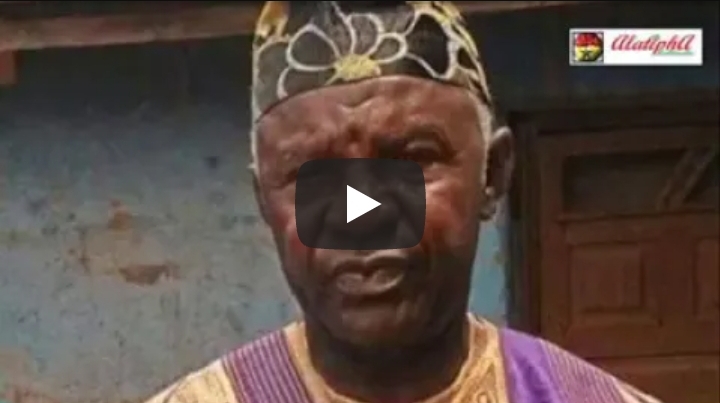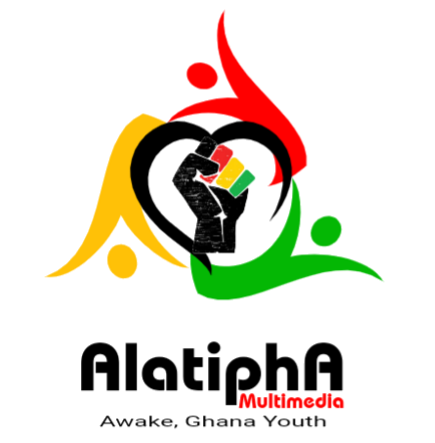The Untold Story Of Kayaye
It is not everything about migration that is negative, and if people get to know the success story of some migrants, they would change their views on the issue.
Female head porters, popularly called ‘Kayaye,’ often migrate from the northern parts of the country to urban cities in search for job opportunities or improved income activities with the hope of raising enough capital to invest in less labour-intensive ventures.
Most of these Kayayees are the “saviours” of their immediate families back home as the survival of their relatives wholly depend on the incomes they make through menial jobs.
Aisha, a 45-year- old, is a former Kayaye who migrated from the Northern Region to Accra at the age of 18. She came down in the company of her two friends when she dropped out from school because her parents could not afford her school fees.
Aisha came from a very poor family who could hardly provide three square meals and the only way out was for her, the eldest child among her four siblings, to move down south in search of unskilled labour.
She and her friends first operated their trade - carrying of peoples’ luggage for a fee - around Tema Station area as well as Tudu Station. They later moved to Konkomba Market, now Agbogbloshie, when the construction of the main Tema Station Lorry Park began.
“I can still remember the first day we arrived in Accra with no relative to lodge with and we were sleeping in front of shops at night after the owners closed.
“It was then that it dawned on me the task ahead of me, but the more l remembered the situation back home the more my desire to endure every pain to achieve my aim of coming to Accra,” Aisha told Ghana News Agency (GNA) in an interview.
She said at times thieves attacked them in the night and took all the money they had on them, with some even going to the extent of raping some of her colleagues.
But Aisha said she was not discouraged as it rather strengthened her resolve to continue to work harder to enable her get some money to remit her parents and also cater for her own needs.
She said she operated for eight years and was able to save money, which she used to sign an apprenticeship agreement in dress making at Makola. Whilst there, she used her off days to work for her upkeep for the week.
“Humility, hard work, dedication and faithfulness won my madam’s heart among all her apprentices and l became her closest friend. She sent me on errands to collect money from her customers or do shopping for both the shop and the house. Sometimes, she will ask me to pick her children from school when her husband travelled.
All these periods, little did l know that God was preparing me for another task.
“One day, my madam called me and asked me if I would like to move into her house at Dansoman to take care of her house when she travels abroad with some of her products.
“This opportunity, I will say, marked the beginning of all the blessings that God has bestowed on me. I continued to be faithful and dedicated to my madam until I completed my three years’ apprenticeship and an additional year of service to show appreciation.
“After my graduation, my madam sponsored me to learn designing at Kaneshie Market Complex, and also assisted me to open my shop at Kasoa Nyanyano in the Central Region,” she said.
Perseverance changed Aisha’s destiny from Kayayo to the Proprietress of Good Shepherd Fashion Designing Institute, Kasoa Nyanyano Road.
She has about 10 apprentices, including two of her siblings, under her tutelage.
Aisha is happily married to Mr Isaac Adams, a businessman, and they have two children and are residing in their own three-bedroom apartment at Kasoa Millennium City.
Dr Kofi Teye, a Researcher at the Centre of Migration Studies, University of Ghana, Legon, agreed that there are positive aspects of migration, but most often society turns to ignore that and concentrate only on the negatives.
He said apart from improving their socio-economic wellbeing, most migrants are better off than when they are in their towns of origin.
Most of the migrants GNA spoke to at Old Fadama and Nima said their current condition is better than when they were in their local communities.
Dr Teye therefore urged the media to partner the centre to highlight some of the positive sides of migration and its impact on the economy.
Professor Mariam Awumbila, Director, Migrating out of Poverty Project, Centre for Migration Studies, said a research conducted into the relationship between migration and wellbeing, showed that a significant proportion of household believed that their welfare had improved as a result of migration of a member.
The study also showed that migration had also improved assets accumulation of more migrant than non-migrant households.
Mr Abubakari Shei, Administer of Old Fadama (Sodom and Gomorra) Development Association, a slum settlement near Agbogbloshie, Accra, confirmed that many of the residents have improved their living conditions and are residing in their houses at Kasoa and its environs.
Mr Shei made this known when journalists undergoing a four-day workshop on migration, organised by the Centre for Migration, in collaboration with Migrating out of Poverty Programme, visited the area as part of a field trip.
“We are all engaged in one business or the other. Some are petty traders while others are engaged in scrap business, among others, and we lead very decent lives just as anybody in this country.
“This community has produced prominent citizens, including a Member of Parliament, police personnel, soldiers, as well as genuine businessmen and women and we appeal to the public to change the negative perception about us so that government can extend some development projects to the community,” he said.
He said the community has a population of about 98,000 people from all ethnic groups across the country and few foreigners and they are being led by a 16- member Council of Elders who see to the day-to-day administration of the area.
Although the story of Aisha is a life play that ended well, nevertheless, society must take a note of caution when dealing with the whole picture of migration, because just a few of migrants become successful through hard work or by mere luck.
This should not warrant people to take advantage to move from their places of origin with the hope that they could also make it elsewhere.
In addition, government needs to distribute development projects equally among the 10 regions to encourage people to stay and work at home to facilitate local progress.
Government must also establish policy interventions to address the rate at which people migrate to the urban cities in search of jobs that are virtually not available.
Credit: peacefmonline.com


.png)





























Comments
Post a Comment